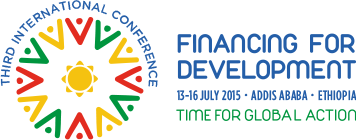Final push for milestone event to finance development
With less than two weeks to go, preparations have been stepped up considerably for the Third International Conference on Financing for Development to be held in Addis Ababa. “I urge you to keep in mind that Addis presents a historic opportunity – one that we cannot afford to miss,” said Conference Secretary-General Wu Hongbo as the final session of negotiations kicked off mid-June with the goal to complete the outcome document ahead of the Conference.
“There are a number of proposals and ideas on the table that are truly transformative”, Mr. Wu continued. “They should meet the high hopes and expectations that we all have […] We need to ensure an ambitious and meaningful Conference outcome for the future of the people and planet,” he stressed.
With the right financing and the right policies, we can achieve our aspirations to end extreme poverty by 2030. And resources are needed. Estimates of annual investment requirements in for example infrastructure — water, agriculture, telecoms, power, transport, buildings, industrial and forestry sectors — amount to $5 to $7 trillion globally. UNCTAD has also estimated that the total investment needs in developing countries amounts to $3.3-4.5 trillion annually, with current investment at $1.4 trillion implying an investment gap of $1.9-3.1 trillion per year.
Yet, the real issue is not the lack of resources. The knowledge and money to finance sustainable development do exist. The main challenge is to channel these resources to areas and sectors of greatest need to improve people’s wellbeing. All actors must take their responsibility and rise to the challenge.
All sources of finance will be required. “We are really trying to encourage all the donor countries, both in the OECD and outside, to take a very serious look at what they’ve been doing in providing official development assistance and trying to scale up their efforts to meet their commitments as early as possible,” Mr. Wu said in a UNTV interview ahead of the Conference. “Recently, we have noticed that the European Union has committed itself again to the 0.7 per cent target [of the GNI], and this is very positive.”
In addition to ODA (Official Development Assistance), the need for private, domestic and international sources of finance has also been stressed. But money alone will not be sufficient. “Trade, debt, governance, capacity building, technology, and innovation are also part of the package to be adopted in Addis Ababa,” Mr. Wu explained.
Before departing for Addis Ababa, Mr. Wu will provide further updates on this milestone event at a press briefing scheduled for 7 July at UN Headquarters. This briefing will be broadcast live via UN Webcast.
The full length UNTV video interview with Mr. Wu will be available shortly on the website of UN Web TV.
A version of this story originally appeared in DESA News.

